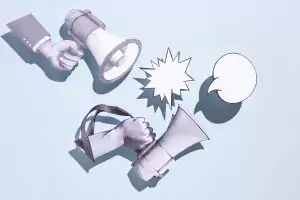
✅ AI Essay Writer ✅ AI Detector ✅ Plagchecker ✅ Paraphraser
✅ Summarizer ✅ Citation Generator
Hi everyone!
 If you ask me what is the most complicated thing about writing for me, I will answer immediately: organization. To me, there are two conditions: I either write something, or I don’t. When I am writing, it is hard for me to get back into reality; I can write several hours in a row without noticing it. “Wow, that’s great!” you might say. Unfortunately, when I am not writing, it is much more difficult to start doing it, and I think I am not the only one having this problem. The periods of not-writing can last for weeks; from time to time, you remember you have a story to finish, but due to numerous reasons, you postpone writing. For me, it is difficult to get back into the context; for some writers I know, it’s the amount of household chores, their job, or the lack of energy. It depends. If you are like me, or anyone of these people, a major question might be: how to start writing regularly?
If you ask me what is the most complicated thing about writing for me, I will answer immediately: organization. To me, there are two conditions: I either write something, or I don’t. When I am writing, it is hard for me to get back into reality; I can write several hours in a row without noticing it. “Wow, that’s great!” you might say. Unfortunately, when I am not writing, it is much more difficult to start doing it, and I think I am not the only one having this problem. The periods of not-writing can last for weeks; from time to time, you remember you have a story to finish, but due to numerous reasons, you postpone writing. For me, it is difficult to get back into the context; for some writers I know, it’s the amount of household chores, their job, or the lack of energy. It depends. If you are like me, or anyone of these people, a major question might be: how to start writing regularly?
One of the main obstacles is routine. I like this word; I think it originates from the word “route,” meaning a path you take regularly. Routine is engulfing; it can be difficult to break the cycle of habitual actions (many of which are necessary). However, even in this flow of constant busyness, one can create small openings of free time and use them for writing.
Get something to keep notes in. A paperback notepad is fine, but I would rather recommend Evernote, Color Note, or Google Keep (my choice is Evernote), because these programs have the function of reminding you about what you wrote and. As I said, for me the most difficult thing about writing breaks is getting back in the context; whenever I think about a story of mine, I am like, “I don’t remember what it’s all about, I am not of the mood, I don’t know what to write next,” and so on. To beat this negative thinking, whenever I finish a writing session, as I call it, I briefly write down the summary of what I’ve written. Also, I chalk out some of the possible options for how my story can develop further. Then, I set a daily reminder to this note, so that every day I return to my writing thinking the same thing I did the last time I wrote. This helps me get into the writing process quicker and easier, and shortens the periods of writing inactivity. The main drawback of this method is the same as with an alarm clock: it’s too easy to turn the reminder off.
In case you do not like gadgets and applications, you can use good ol’ colored stickers. Stickers are even better than digital reminders, because you can stick them around your house or apartment and always keep your writing ideas in front of your eyes. I used to do it before I bought a smartphone, and the method turned out to be rather effective; some of my writing friends still use it. As time passes, you get used to the stickers, and start ignoring them almost automatically, so if you want them to keep drawing your attention, someday you will have to change them to pin-up posters or something like that.
Having a schedule, as you already might know, is super-important for any writer. Although the public tends to imagine writers as disheveled chaotic people gushing with stories and ideas at all times, in fact, organizing one’s writing is important, as it helps you regularly work on your writing and your stories. However, in case it is difficult to find a free hour every evening, try writing whenever you feel bored or have nothing to do. In 90% of the cases, it is better than any other alternative you can come up with.
If you use other tricks to keep yourself on the writing track, please write about them in the comments. I would greatly appreciate it.
Enjoy, and stay updated!
Follow us on Reddit for more insights and updates.




Comments (0)
Welcome to A*Help comments!
We’re all about debate and discussion at A*Help.
We value the diverse opinions of users, so you may find points of view that you don’t agree with. And that’s cool. However, there are certain things we’re not OK with: attempts to manipulate our data in any way, for example, or the posting of discriminative, offensive, hateful, or disparaging material.